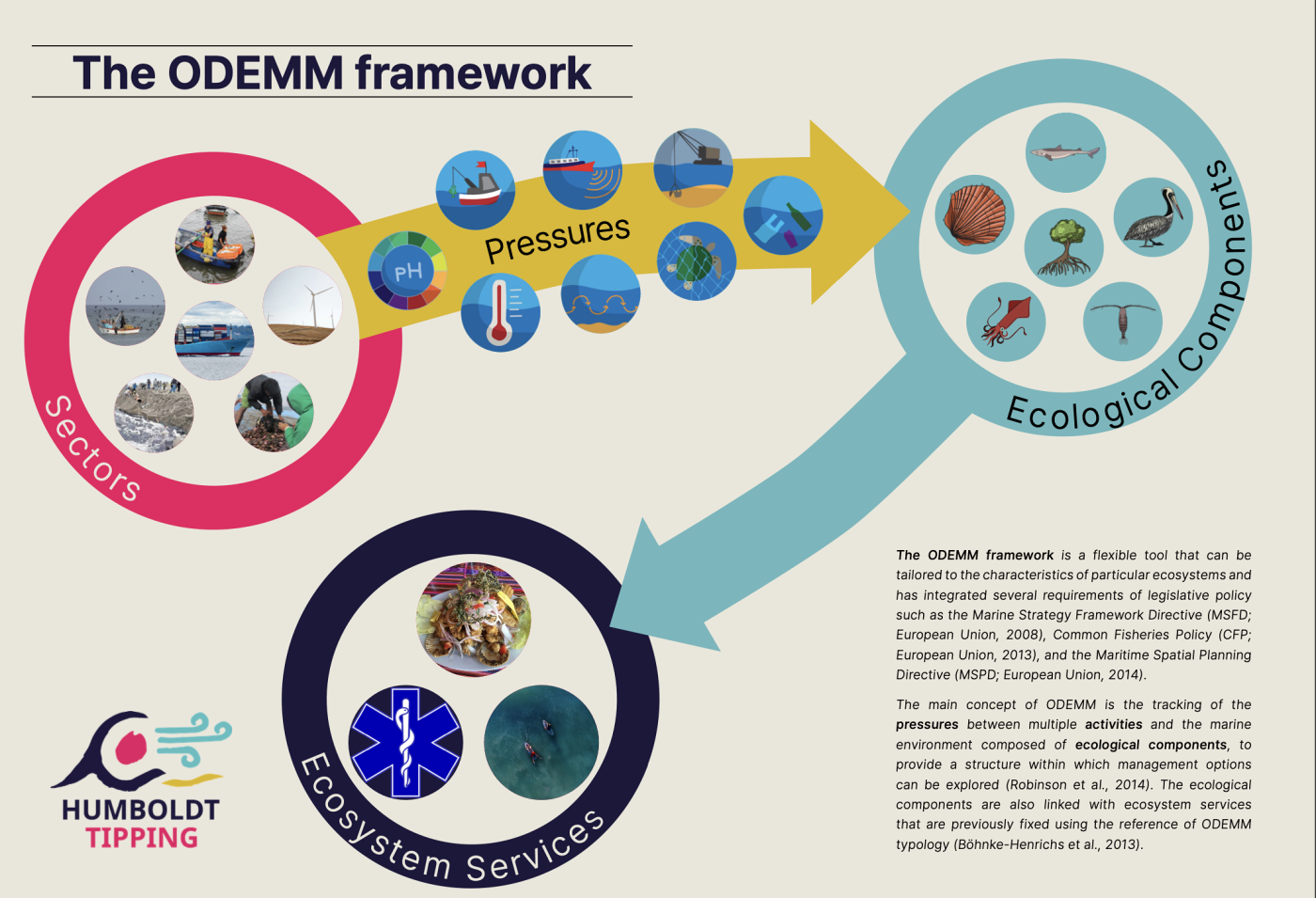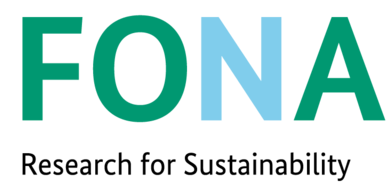Options for Delivering Ecosystem-based Marine Management (ODEMM)
Options for Delivering Ecosystem-based Marine Management (ODEMM) is an European framework to identify management options of marine ecosystems in face to risk associated to anthropogenic activities. Within the framework of the Humboldt Tipping project, we propose adapt ODEMM to the Humboldt system to represent current conditions and project them into future scenarios.

Link to the materials for the ODEMM framework
Contact: Dr. Giannina Passuni, Work Package 2, Hamburg University


